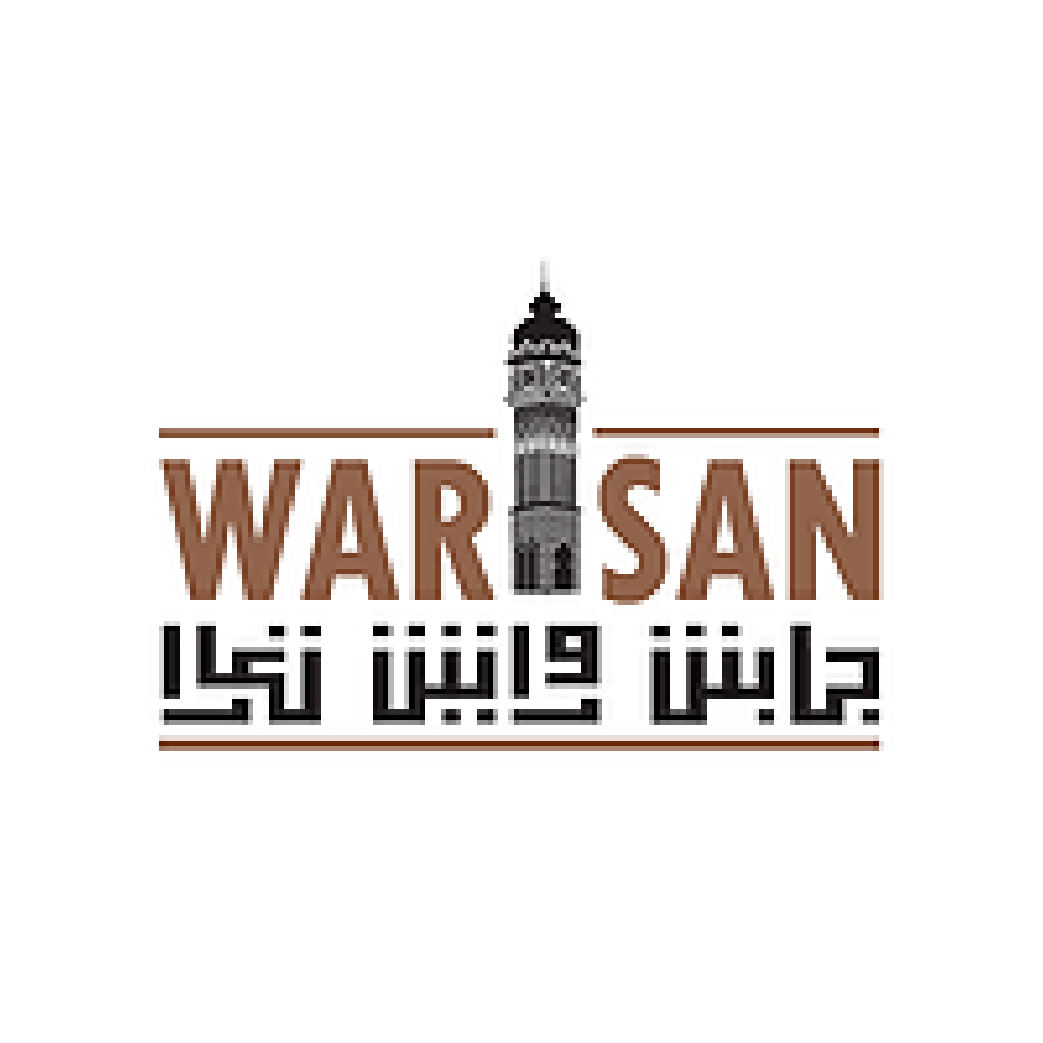About JKKN

YBrs.Encik Mohd Amran bin Mohd Haris
Director General
Director General Office
Headquarters, National Department for Culture and Arts
Level 34, Lot 1001, TH Perdana Tower
Jalan Sultan Ismail
50250 Kuala Lumpur
Tel : 03-2614 8227
Fax : 03-2697 0786
Emel : amran[at]jkkn.gov.my
Assalamualaikum (Peace be upon your) and warmest greetings.
Alhamdulillah (Praise to Allah), we are grateful to Allah for His guidance and blessings that the National Department for Culture and Arts (JKKN), a department under the Ministry of Tourism, Art and Culture has successfully upgraded its website in line with the JKKN Digital Transformation initiative.
Welcome and thank you to the visitors of JKKN website which is one of the communication media channels that is most effective in getting cultural arts information as well as understanding the objectives, functions and roles of JKKN in popularizing and sustaining cultural arts.
JKKN have organized various programmes which is one of the initiatives of the department to increase the awareness, knowledge of society towards the importance of cultural arts in life, and fostering the spirit of unity among races. The programmes organized are also a part of human capital development medium towards creating a society who are courteous and upholding noble values in fostering unity and prosperity.
The outbreak of the COVID-19 pandemic has affected the whole world including Malaysia, and consequently, the planning and implementation of JKKN programmes physically. Therefore, JKKN becomes pro-active in planning programmes digitally to suit the current situation in the country.
JKKN have applied the digital communication technology facilities encompassing various channels including social medias and department's website which are globally accessible. It is hoped that JKKN's website will become the main platform to disseminate information, knowledge and delivering latest activities organized by JKKN.
On behalf of the department, I welcome the views and feedbacks from our visitors on JKKN's website in the effort of improving the quality of our services for the good of the society and nation.
I wish to congratulate and thank all JKKN communities for giving the fullest commitment in making the various programmes/activities as planned by the department and ministry, a success.
Thank you.
Director General
National Department for Culture and Arts

Kosong
Vice Director General (Plan & Policy)
Vice Director General Office(Plan & Policy)
National Department for Culture and Arts
Level 34, Lot 1001, TH Perdana Tower
Jalan Sultan Ismail
50250 Kuala Lumpur
Tel : 03-2614 8332
Fax : 03-2697 0875
Email : [at]jkkn.gov.my
THE ROLE OF CHIEF INFORMATION OFFICER (CIO)
Leader of change through the alignment of Agency’s ICT Strategic Plan (ISP) with the needs of National Development Plan, Agency Strategic Plan and Public Sector ISP;
To implement and coordinate the use of policies, standards and global good practices;
To coordinate the encouragement of ICT culturalization in public services delivery system; and
To implement and coordinate Electronic Government, infrastructure and ICT security innovation.
selamatan ICT.

YBrs. Encik Mohd Amran bin Mohd Haris
Director General
Director General Office
Headquarters, National Department for Culture and Arts
Level 34, Lot 1001, TH Perdana Tower
Jalan Sultan Ismail
50250 Kuala Lumpur
Tel : 03-2614 8227
Fax : 03-2697 0786
Email : amran[at]jkkn.gov.my

Mohd Radzi bin Omar
Deputy Director General (Policy & Planning)
Deputy Director General Office(Policy & Planning)
National Department for Culture and Arts
Level 30, Lot 1001, TH Perdana Tower
Jalan Sultan Ismail
50250 Kuala Lumpur
Tel : 03-2614 8338
Fax : 03-2697 0875
Email : radzi[at]jkkn.gov.my

Empty
Deputy Director General (Art& Culture)
Deputy Director General Office(Art& Culture)
National Department for Culture and Arts
Level 34, Lot 1001, TH Perdana Tower
Jalan Sultan Ismail
50250 Kuala Lumpur
Tel : 03-2614 8332
Fax : 03-2697 0754
Email : -[at]jkkn.gov.my
Since 1953, the Cultural Division was founded under the Department of Social Welfare and placed under the Prime Minister Department aimed at enhancing National Culture in developing social economy and fostering noble values.
The Cultural Division plays the role of outlining cultural development policy, and planning, coordinating and managing cultural programmes by preserving the unity and national culture to ensure the essence and aspirations remain appreciated through appreciation and continuous practice.
In 1964, the Cultural Division was placed under the Ministry of Information. The Ministry of Information and Broadcasting with the Ministry of Culture and Social Welfare jointly presented a proposal for the establishment of Malaysian National Cultural Centre. In the original proposal, the Cultural Complex would encompass other few components such as National History Museum, National Art Gallery, National Planetarium, Main Theatre, Restaurants and Cultural Mall. The site for construction of this complex was in Lembah Pantai which was adjacent to the Malaysia Broadcast Center and the University of Malaya.
In 1972, the Cultural Division was placed under the Ministry of Culture, Youth and Sports, and on 20th May 1987, the Government have merged the Cultural Division at the Ministry of Culture, Youth and Sports with the Malaysian Tourism Development Board at the Ministry of Trades and Industries, which was subsequently known as the Ministry of Culture and Tourism.
Beginning 22 October 1992, the Ministry of Culture and Tourism have changed its name and is more popularly known as the Ministry of Culture, Arts and Tourism and have been operating at the Putra World Trade Centre (PWTC) until the formation of the new Cabinet by the YAB Prime Minister on 01 November 2003.
With the formation of the new Cabinet by the YAB Prime Minister, matters related to Arts and Culture were placed under the Ministry of Culture, Arts and Heritage Malaysia while matters related to the aspects of tourism were placed under the Ministry of Tourism Malaysia.
During the formation of the Ministry of Culture, Arts and Heritage Malaysia, the Arts and Cultural Development Division status remains as a division under the Ministry until the directive from YB Minister for a motion to be made by the Ministry for the establishment of the National Department for Culture and Arts, as well as the States Department for Culture, Arts and Heritage.
The Arts and Cultural Development Division prepared the proposal paper on the establishment of the National Department for Culture and Arts, as well as the States Department for Culture, Arts and Heritage. In November 2004, the presentation of the proposal paper on the establishment of the Department was submitted to the Civil Service Department.
On 15 March 2005, the Culture and Arts Development Division received Warrant of Appointment No. S/20 year 2005 dated 22 March 2005. By receiving this Warrant of Appointment, the National Department for Culture and Arts and the States Department for Culture, Arts and Heritage were officially formed.
Subsequently, through the Warrant of Appointment No. S40 dated 1 February 2007, the creation of another new division at JKKN which is the Planning, Research and Development Division aimed at enabling JKKN to function better in planning and research matters for arts and culture. By 18 March 2008, JKKN shifted its patronage and was placed under the Ministry of Unity, Culture, Arts and Heritage (KPKKW). In April 2009, JKKN patronage was under the Ministry of Information, Communication and Culture (KPKK). For four years under KPKK, on 16 May 2013, JKKN became an agency under the Ministry of Tourism and Culture which is currently known as the Ministry of Tourism, Arts and Culture.
- 1953 Formation of Cultural Division under the Ministry of Social Welfare
- 1964 Cultural Division placed under the Ministry of Information
- 1972 Cultural Division at the Ministry of Culture, Youth and Sports
- 1987 Cultural Division at the Ministry of Tourism and Culture
- 1992 Cultural Division at the Ministry of Culture, Arts and Tourism
- 2004 Cultural Division at the Ministry of Culture, Arts and Heritage (KEKKWA)
- 22 Mar 2005 Upgraded to JKKN (Warrant Number S20 Year 2005)
- 1 Feb 2007 Creation of a new division which is planning, research and development division (Warrant Number S40 Year 2007)
- 18 Mac 2008 JKKN as one of the agencies under the Ministry of Unity, Culture, Arts and Heritage (KPKKW)
- April 2009 JKKN under the patronage of the Ministry of Information, Communication and Culture (KPKK).
- 16 May 2013,Since then, JKKN becomes an agency under the Ministry of Tourism and Culture.
- On the 2nd July 2018, this Ministry was renamed as the Ministry of Tourism, Arts and Culture Malaysia as announced by YAB Prime Minister during the Cabinet Formation after the 14th General Election.
Vision.
Cultural Art lead body in supporting Arts for Arts, Arts for Unity, and Cultural Arts in Revenue Generation for industry players towards the formation of national identity and prosperity
Mission.
- Strengthening efforts to preserve, maintain, expand and popularize the National cultural arts heritage;
- Potentiating cultural arts elements to enhance the National Identity, prosperity and unity;
- Encouraging innovative cultural arts to increase industry player's income;
- Contributing to the growth of cultural tourism activities.
DEPARTMENT OBJECTIVE
- To maintain and expand culture and arts
- To encourage cultural arts activities growth at various layers through effective collaboration between cultural arts industry players, Government agencies, Private sectors, Non-Governmental Organisations and domestic and foreign cultural arts activists.
- To disseminate cultural arts information to general public locally and internationally.
- To provide conducive arts and culture infrastructure facilities and advisory to the Malaysian society.
- To increase skilled human capital development in cultural arts field.
- Meningkatkan pembangunan modal insan mahir dalam bidang seni budaya.
DEPARTMENT FUNCTION
- To implement research and development, documentation and publishing, cultural arts coaching, skilled human capital development in cultural arts field, expanding cultural arts, enhancing cultural arts, artistic and production development, and cultural arts promotional programme;
- Building effective networking between cultural arts industry players, Government agencies, Private sectors, Non-Government Organizations and cultural arts activists locally and internationally;
- Providing platform for arts activists involved in economic field through cultural arts activities;
- Strengthening cultural and arts activities that are appropriate to become domestic and international tourist attractions; AND
- Optimizing States JKKN organizational functions.
- Popularizing and assimilating arts and cultural activities among the multicultural society and target levels.
- Providing infrastructural facilities, culture and arts guidelines, fund assistance, advisory services, training and arts activists recognition.
- Researching, collecting, documenting, publishing and disseminating cultural and arts information and reference materials to the public.
- Formulating and encouraging arts product development in line with creative industry development.
- Formulating cultural and arts enhancement programmes locally and internationally.
Background
DASAR KEBUDAYAAN KEBANGSAAN (DKK) 1971 DAN DASAR KEBUDAYAAN NEGARA (DAKEN) 2021
Kandungan Dasar Kebudayaan Negara (DAKEN) 2021 dibangunkan dengan mengambil kira asas-asas pembinaan negara bangsa seperti yang sedia ada dalam Dasar Kebudayaan Kebangsaan (DKK) 1971.
DKK tidak pernah diberi pensahihan kerana tidak pernah dibentangkan di peringkat Kabinet dan hanya dilaksanakan secara pentadbiran sepanjang tempoh 50 tahun, namun beberapa kejayaan telah direkodkan hasil daripada saranan-saranan resolusi. DAKEN digubal sebagai kesinambungan DKK dalam konteks yang lebih sahih sebagai sebuah punca kuasa.
DAKEN turut mengambil kira prinsip-prinsip yang terkandung dalam Dasar Kebudayaan Kebangsaan (DKK) yang diilhamkan pada tahun 1971 dan berlandaskan Perlembagaan Persekutuan sebagai ikatan mengharmonikan masyarakat majmuk di Malaysia. Dasar ini juga menjadikan prinsip-prinsip dan objektif Rukun Negara sebagai ideologi untuk menyeragamkan kefahaman semua rakyat pelbagai kaum di negara ini bagi memelihara kemakmuran, keamanan dan kesejahteraan dengan jiwa patriotik.
Penggubalan DAKEN mengambil kira lima (5) aspek utama iaitu Keterangkuman (inclusivity), Kebersamaan (cohesiveness), Semangat Kebanggaan (spirit of prideness), Keterbukaan (openness) dan Menyeluruh (holistic).
DAKEN menjadi panduan dan rujukan bagi memperkasa serta meningkatkan pemahaman, penghayatan, kecintaan dan pengamalan budaya dalam aspek kehidupan. Dasar ini perlu dimiliki, dihayati dan didokong oleh semua pihak supaya aspek seni, budaya dan warisan negara terus terpelihara, disanjungi dan lestari.
Dasar Kebudayaan Negara (DAKEN) menggariskan visi, misi dan strategi yang jelas ke arah menjadikan Malaysia sebagai sebuah Negara Maju, Rakyat Berbudaya dengan memfokuskan kepada tujuh (7) teras utama iaitu:
1. Budaya Nilai Tinggi
2. Keharmonian Masyarakat,
3. Pemeliharaan dan Pemuliharaan Warisan Budaya
4. Pembangunan dan Pengembangan Budaya
5. Pemerkasaan Budaya
6. Penjanaan Ekonomi Kebudayaan
7. Kecemerlangan Budaya.
Dalam usaha mencapai visi dan misi kebudayaan negara, sebanyak tiga puluh sembilan (39) strategi dengan sembilan puluh lima (95) pelan tindakan telah dikenal pasti, dirancang dan dirangka bagi tempoh pelaksanaan lima (5) tahun (2021-2025) berdasarkan tujuh (7) teras utama tersebut.
Strategi dan Pelan Tindakan Dasar Kebudayaan Negara ini diharap dapat membantu kerja-kerja kreatif dalam kalangan rakyat, dengan mengutamakan budaya nilai tinggi dan tahap keintelektualan.
Secara umumnya, pelaksanaan dasar ini melibatkan empat (4) institusi penting iaitu:
1. Institusi Kekeluargaan
2. Institusi Pendidikan
3. Institusi Kemasyarakatan
4. Institusi Perkhidmatan
DAKEN menjadi satu wadah penting untuk memantapkan pembinaan negara bangsa supaya terus kekal maju dengan rakyatnya yang berbudaya nilai tinggi. Dasar ini diharap dapat mencapai matlamat untuk Malaysia sebagai sebuah Negara Maju, Rakyat Berbudaya.
For more information, Click Here
Pelaksanaan aktivti/program yang berteraskan fungsi JKKN tersebut berdasarkan penetapan Petunjuk Prestasi Utama yang merangkumi bilangan aktiviti/program, penyertaan pelbagai kaum, taburan lokasi aktiviti sama ada di bandar atau di luar bandar, jantina, umur, tahap pendidikan dan pekerjaan.
Dalam penyemarakan aktiviti seni budaya seluruh negara, JKKN telah melaksanakan aktiviti di peringkat daerah, negeri, kebangsaan dan antarabangsa. Semua aktiviti tersebut dilaksanakan melalui 3 sektor utama di ibu pejabat iaitu Sektor Pentadbiran dan Kewangan, Sektor Kebudayaan dan Kesenian serta Sektor Dasar dan Perancangan di samping 14 JKKN negeri dengan penggemblengan 377 tenaga pegawai dan kakitangan. Di samping usaha ini, dimantapkan dengan kewujudan 11 buah kompleks JKKN negeri yang menyediakan kemudahan prasarana bagi pelaksanaan pelbagai aktiviti seni budaya di peringkat negeri.
Pelan Strategik JKKN 2021-2025 akan dikaji semula selepas tempoh tiga (3) tahun bagi memastikan perancangan program adalah memenuhi keperluan dan dasar semasa berkaitan pembangunan dan pengurusan kebudayaan dan kesenian. JKKN akan memastikan pelan strategik ini sentiasa progresif, responsif serta bersifat dinamik dalam merealisasikan visi jabatan sebagai peneraju bidang kebudayaan dan kesenian negara. Ia juga adalah satu rujukan dan panduan penting bagi memastikan JKKN kekal relevan dalam menghadapi arus pemodenan.
Klik Disini untuk paparan Pelan Strategik Jabatan Kebudayaan dan Kesenian Negara 2021-2025
We promise to provide excellent and committed services in carrying out our responsibilities as follows:
- To implement conservation, propagation and promotion of cultural arts activities to sustain appreciation among the society.
- To increase cultural and arts activities that involve various races.
- To provide arts and culture conducive infrastructure to users.
- To increase research and development of new cultural arts products.
- To ensure customer’s complaints are promptly responded within three (3) days upon receiving the complaint.
| No. | Month | Number of Complaints/Inquiries/Suggestions Received | Number of Complaints/Inquiries/Suggestions Resolved Within 3 Days |
|---|---|---|---|
| 1 | January | 87 | 87 |
| 2 | February | ||
| 3 | March | ||
| 4 | April | ||
| 5 | May | ||
| 6 | June | ||
| 7 | July | ||
| 8 | August | ||
| 9 | September | ||
| 10 | October | ||
| 11 | November | ||
| 12 | December | ||
| Total | 87 | 87 |
Bilangan Transaksi Sistem Pendaftaran Penggiat Seni & Budaya tahun 2023
| Month | Arts & Culture Activists Year 2024 | BBK Arts & Culture Information Year 2024 | Questions & Suggestions Year 2024 |
|---|---|---|---|
| January | 87 | ||
| February | |||
| March | |||
| April | |||
| May | |||
| June | |||
| July | |||
| August | |||
| September | |||
| October | |||
| November | |||
| December | |||
| Total | 87 |
- Details
- Uncategorised



 en
en  bm
bm 























